#articles of tumblr
Text
i know not many people would want to read a 10,000 word article about the minecraft end poem and how the author, Julian Gough, was never fairly compensated for his work and has made it public domain.
But it's a very well-written and heartfelt read, and he makes it very clear that none of this is a cash-grab and despite the fact that he is essentially a starving artist in this capitalist society, he only mentions his financial struggles despite Minecraft's huge huge success at the bottom of this article and not in the tweets so as to not dilute his message.
Anyway, I just think it'd be cool if those who are able to could support him in some way whether it be subscribing to his substack or donating to his paypal (that's linked in the article, you can ctrl + F to find it easier), that's all.
#Edit: Please look at the article for his paypal and his substack!! most ppl are reblogging a version where i didnt mention it oh gosh#im not really. the kind of person to make posts like this and i dont have the spoons to make it look nice.#my tumblrs not that visible anyway so i guess it doesnt actually matter#i just think that understandably not many ppl would read through the entire article and it makes me so sad that even in the article#he talks about how badly he just wants to make art and not play the capitalism game and still he doesnt talk about needing support#on the platforms where it'd be most visible bc he doesnt WANT to play the capitalism game even if society dicates it and its meant to#be an act of LOVE and just. yeah.#minecraft#minecraft end poem#mineblr
14K notes
·
View notes
Text
hey, my kurdish friend wanted to point out that the iranian woman murdered by the police in tehran was a kurd and her kurdish name was jîna emînî. she has mostly been referred to as mahsa amini, the iranian version of her name, in the media & that can ofc still be used to make sure posts about her reach a mainstream audience. however people should make sure to mention her given kurdish name foremost, as well as highlight the fact that she was a kurd in the first place, because that played a part in her facing the violence that she did.
#my friend doesn't have a tumblr & her original post on instagram abt this was not in english so i couldn't just repost it#so this is a short summary of her message#if you need to know more i'm not the person to ask abt this & you should go check out kurdish activists' posts and articles on this event#personal#mahsa amini#jîna emînî#jina emini#iran#kurdistan#kurdish#social justice#feminism#police brutality
18K notes
·
View notes
Text
WE GOT ON SOME SORT OF NEWS?


#My favorite part is them calling us a throwback and early 2000s styled when i wasnt. on the internet back then#in fact i think the humor is very modern tumblr styled but anyhow feels so strange sealsdaily is big enough to have an article about it#mod ribbon#not daily#this is crazy im looking at the writer and they probably have a blog ehre and shit...posting about the food disgust test
951 notes
·
View notes
Text
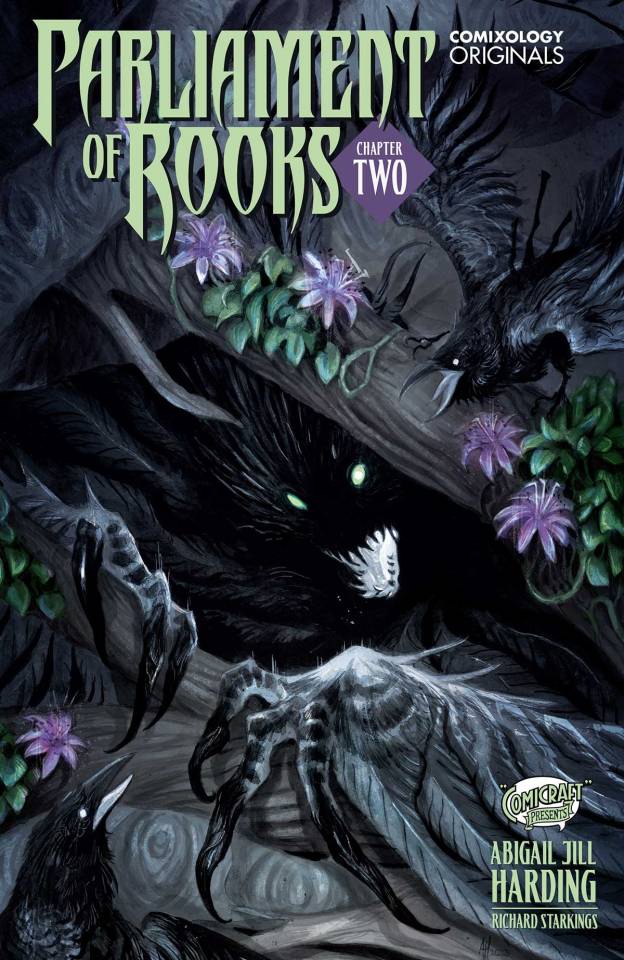


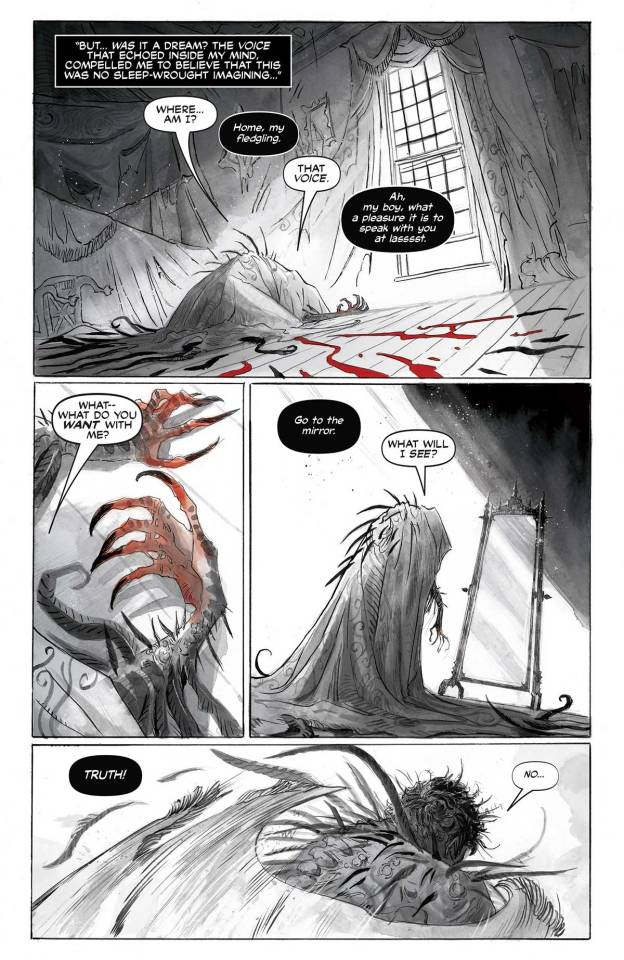
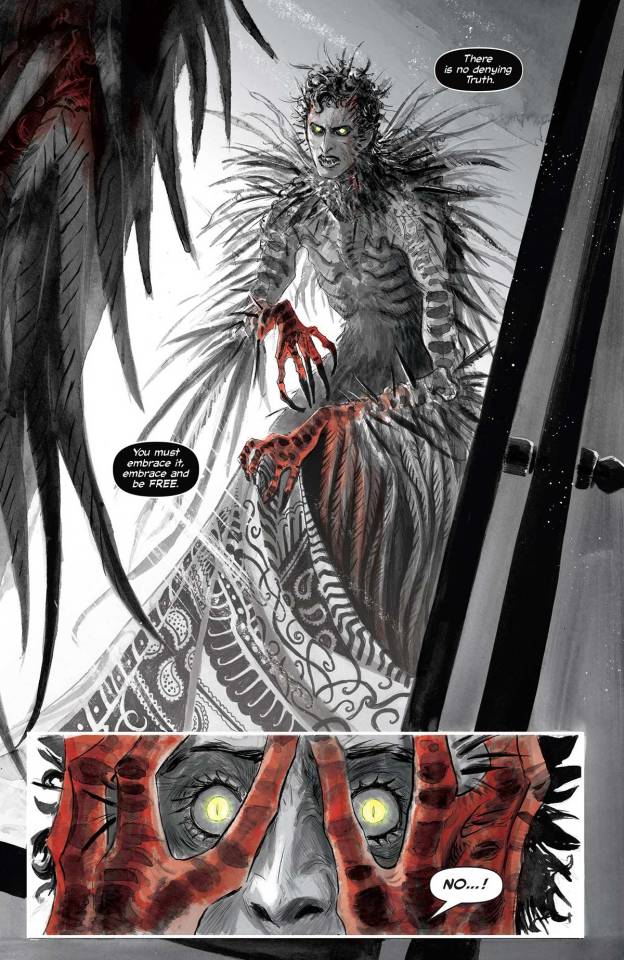
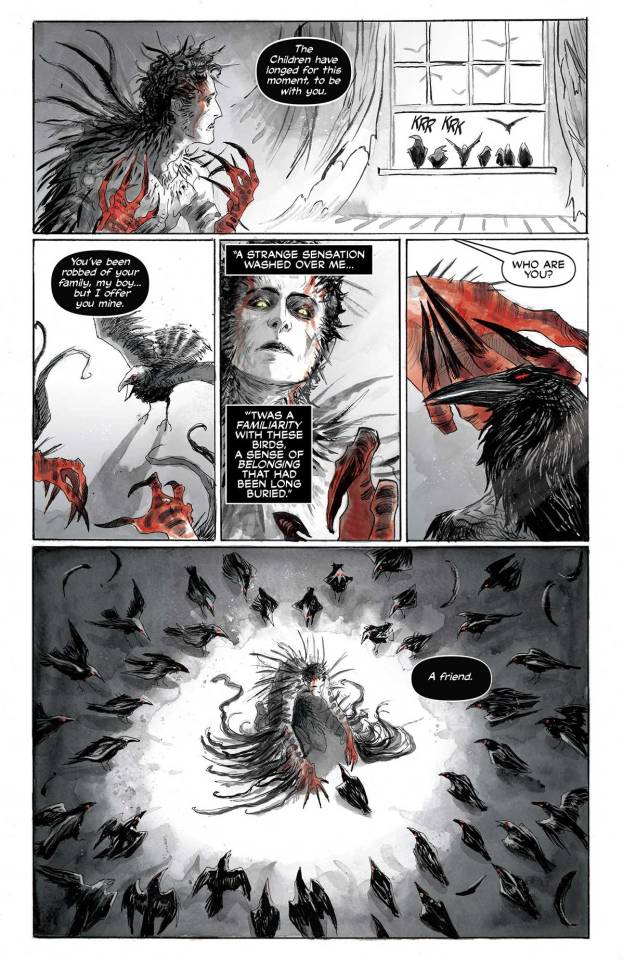
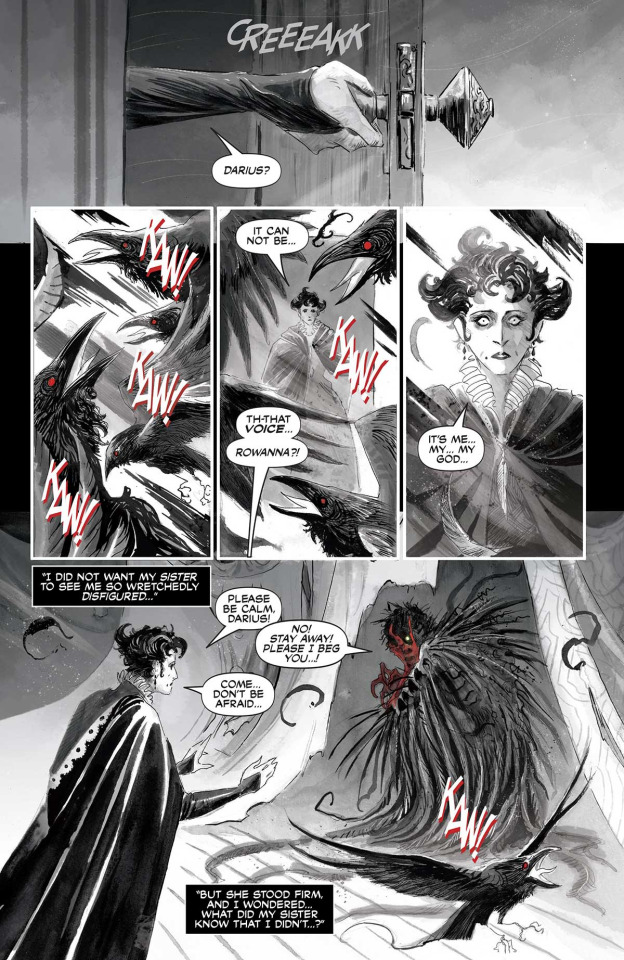
Preview pages for Parliament of Rooks #2
Read it here
#my artwork#art#abzjharding#abz-j-harding#ink#artist#artists#illustration#drawing#parliament of rooks#por#abigail jill harding#artists on tumblr#comics#comicbook#gothic#gothic horror#horror#birds#on yes...the definite article is here#fancy bird bird#crows#rooks#ravens#corvids#corvidae
962 notes
·
View notes
Text
Do Your Research
This phrase is regularly thrown around writeblr and for good reason. It's important to research what you are writing about to know what to include, what can be fudged, and how to depict whatever you're writing. I see "do your research" most thrown around by well-meaning and highly traditionally educated writers. It's solid advice, after all!
But how do you research?
For those writers who don't already have the research skills necessary to write something comfortably already downloaded into your brain, I put this guide together for you.
Where do I even start?
It's a daunting task, research. But the best place to start is with the most basic, stupidest question you can think of. I'm going to talk about something that I already know a lot about: fighting.
When researching fight scenes, a great way to start is to look up what different weapons are. There are tons out there! So ask the stupid questions. What is a sword? What is a gun? How heavy are they?
Google and Wikipedia can help you a lot with these basic-level questions. They aren't great sources for academic articles, but remember, this is fiction. It doesn't need to be perfect, and it doesn't need to be 100% accurate if you don't want it to be. But knowing what is true to life will help you write well. Just like knowing the rules of writing will help you break them.
You may find in your basic research sweep that you have a lot more specific questions. Write them all down. It doesn't matter if they seem obvious. Write them down because they will be useful later.
How To Use Wikipedia Correctly
Wikipedia is a testament to cooperative human knowledge. It's also easy to edit by anonymous users, which means there is a lot of room for inaccuracies and misleading information. Wikipedia is usually pretty good about flagging when a source is needed or when misleading language is obvious, but Wikipedia itself isn't always the most accurate or in-depth source.
Wikipedia is, however, an excellent collection of sources. When I'm researching a subject that I know nothing about, say Norse mythology, a good starting point is the Wikipedia page for Odin. You'll get a little background on Odin's name and Germanic roots, a little backstory on some of the stories, where they appear, and how they are told.
When you read one of the sentences, and it sparks a new question, write the question down, and then click on the superscript number. This will take you directly to the linked source for the stated fact. Click through to that source. Now you have the source where the claim was made. This source may not be a primary source, but a secondary source can still lead you to new discoveries and details that will help you.
By "source-hopping," you can find your way across the internet to different pieces of information more reliably. This information may repeat itself, but you will also find new sources and new avenues of information that can be just as useful.
You mean I don't need a library?
Use your library. Libraries in many parts of the US are free to join, and they have a wealth of information that can be easily downloaded online or accessed via hardcopy books.
You don't, however, need to read every source in the library for any given topic, and you certainly don't need to read the whole book. Academic books are different from fiction. Often their chapters are divided by topic and concept and not by chronological events like a history textbook.
For example, one of my favorite academic books about legislative policy and how policy is passed in the US, by John Kingdon, discusses multiple concepts. These concepts build off one another, but ultimately if you want to know about one specific concept, you can skip to that chapter. This is common in sociological academic books as well.
Going off of my Norse Mythology example in the last section, a book detailing the Norse deities and the stories connected to them will include chapters on each member of the major pantheon. But if I only care about Odin, I can focus on just the chapters about Odin.
Academic Articles and How To Read Them
I know you all know how to read. But learning how to read academic articles and books is a skill unto itself. It's one I didn't quite fully grasp until grad school. Learn to skim. When looking at articles published in journals that include original research, they tend to follow a set structure, and the order in which you read them is not obvious. At all.
Start with the abstract. This is a summary of the paper that will include, in about half a page to a page, the research question, hypothesis, methods/analysis, and conclusions. This abstract will help you determine if the answer to your question is even in this article. Are they asking the right question?
Next, read the research question and hypothesis. The hypothesis will include details about the theory and why the researcher thinks what they think. The literature review will go into much more depth about theories, what other people have done and said, and how that ties into the research of the present article. You don't need to read that just yet.
Skim the methods and analysis section. Look at every data table and graph included and try to find patterns yourself. You don't need to read every word of this section, especially if you don't understand a lot of the words and jargon used. Some key points to consider are: qualitative vs. quantitative data, sample size, confounding factors, and results.
(Some definitions for those of you who are unfamiliar with these terms. Qualitative data is data that cannot be quantified into a number. These are usually stories and anecdotes. Quantitative data is data that can be transferred into a numerical representation. You can't graph qualitative data (directly), but you can graph quantitative data. Sample size is the number of people or things counted (n when used in academic articles). Your sample size can indicate how generalizable your conclusions are. So pay attention. Did the author interview 300 subjects? Or 30? There will be a difference. A confounding factor is a factor that may affect the working theory. An example of a theory would be "increasing LGBTQ resources in a neighborhood would decrease LGBTQ hate crimes in that area." A confounding factor would be "increased reporting of hate crimes in the area." The theory, including the confounding factor, would look like "increasing LGBTQ resources in a neighborhood would increase the reporting of hate crimes in the area, which increases the number of hate crimes measured in that area." The confounding factor changes the outcome because it is a factor not considered in the original theory. When looking at research, see if you can think of anything that may change the theory based on how that factor interacts with the broader concept. Finally, the results are different from the conclusions. The results tell you what the methods spit out. Analysis tells you what the results say, and conclusions tell you what generalizations can be made based on the analysis.)
Next, read the conclusion section. This section will tell you what general conclusions can be made from the information found in the paper. This will tell you what the author found in their research.
Finally, once you've done all that, go back to the literature review section. You don't have to read it necessarily, but reading it will give you an idea of what is in each sourced paper. Take note of the authors and papers sourced in the literature review and repeat the process on those papers. You will get a wide variety of expert opinions on whatever concept or niche you're researching.
Starting to notice a pattern?
My research methods may not necessarily work for everybody, but they are pretty standard practice. You may notice that throughout this guide, I've told you to "source-hop" or follow the sources cited in whatever source you find first. This is incredibly important. You need to know who people are citing when they make claims.
This guide focused on secondary sources for most of the guide. Primary sources are slightly different. Primary sources require understanding the person who created the source, who they were, and their motivations. You also may need to do a little digging into what certain words or phrases meant at the time it was written based on what you are researching. The Prose Edda, for example, is a telling of the Norse mythology stories written by an Icelandic historian in the 13th century. If you do not speak the language spoken in Iceland in 1232, you probably won't be able to read anything close to the original document. In fact, the document was lost for about 300 years. Now there are translations, and those translations are as close to the primary source you can get on Norse Mythology. But even then, you are reading through several veils of translation. Take these things into account when analyzing primary documents.
Research Takes Practice
You won't get everything you need to know immediately. And researching subjects you have no background knowledge of can be daunting, confusing, and frustrating. It takes practice. I learned how to research through higher formal education. But you don't need a degree to write, so why should you need a degree to collect information? I genuinely hope this guide helps others peel away some of the confusion and frustration so they can collect knowledge as voraciously as I do.
– Indy
#writing advice#writing tips#writing resources#writeblr#amwriting#writblr#writers of tumblr#writers on tumblr#writing help#writing guide#how to research#reading research articles#do some research#do your own research#do your research#research for writers#writing research#writing tip#writing reference#writer tips
2K notes
·
View notes
Text












KÄÄRIJÄ FOR VOGUE SCANDINAVIA ► 2023/10/03
How Finnish sensation Käärijä got the world wearing neon green and singing 'Cha Cha Cha'
#jere pöyhönen#käärijä#eurovision#esc#vogue#pls god what is this hair i am keeping myself from sentences <3#yes i paid for this haha#article in tumblr kcord ig
931 notes
·
View notes
Text
appalled but also not surprised at the amount of people who think ed is textually izzy’s domestic abuser and their problem with this is that in the season two izzy dies and apologizes to ed in his final moments. but they apparently are fine with the entire premise of the show being a relationship between a white man and an indigenous man and the indigenous man is written to have had a violent and abusive father and who then continues the “cycle of abuse” with his first mate/subtextual wife. i can’t imagine watching and supporting this show while thinking that the entire foundation of ed’s character was reinforcing such shitty racist stereotypes abt poc.
if we wanna talk about ed and being an abusive boss to his crew that’s one thing. but when it comes to izzy, from 1x10 to 2x02 we are not seeing an old, routine pattern of behavior from ed where he uses violence to control izzy. we’re seeing izzy’s attempts to push ed back into being blackbeard (we’re seeing izzy’s attempts to control ed) backfire on him, we’re seeing izzy feeding this poison and then getting the poison turned back on him. and it has been sooooo incredibly predictable to watch a huge chunk of this fandom reframe the intended reading of this show to victimize the white side character and demonize the indigenous protagonist.
#ofmd#our flag means death#izzy critical#izzy hands#dizzy izzy#edward teach#ed teach#edward teach born on a beach#ofmd season 2#ofmd s2#ofmd 2#ofmd s2 spoilers#ofmd fandom crit#if this post is in the izcourse tag no it isnt u just don’t know how to use tumblr#txt#mine#og#link#david jenkins#article
550 notes
·
View notes
Text

Some dramatic rescue
#sketch#our flag means death#ofmd#this was already in my tumblr drafts and then that vanity fair article dropped which is why it's completely unrelated lol#i just think ed should keep having to save stede. or at least once
738 notes
·
View notes
Text
SPAMTON IS [[salty]]! Finally got around to animating everybody's favorite number 1 rated salesman! 🕺 (watch with audio 🔊 or click "Keep Reading" to view transcript)
Spamton: NOW ACTUALLY I'VE NEVER BEEN COMFORTABLE WITH THE WHOLE [[adoring fan club]] THING. PERHAPS THAT'S WHY I FIND YOUR [[obvious disdain]] FOR ME SO [[refreshing]].
Noelle: ObViOus?!!? I was trying so hard to hide it...

#spamton#deltarune#animation#tumblr sexyman#noelle#kris#3d animation#fanart#my art#Smol Disclaimer: I'm not throwing shade at sexypedia#Love the site and I think the folks maintaining it do great work#Also I think its hilarious and amazing that spamton has an article there#which is why I wanted to reference it
1K notes
·
View notes
Text
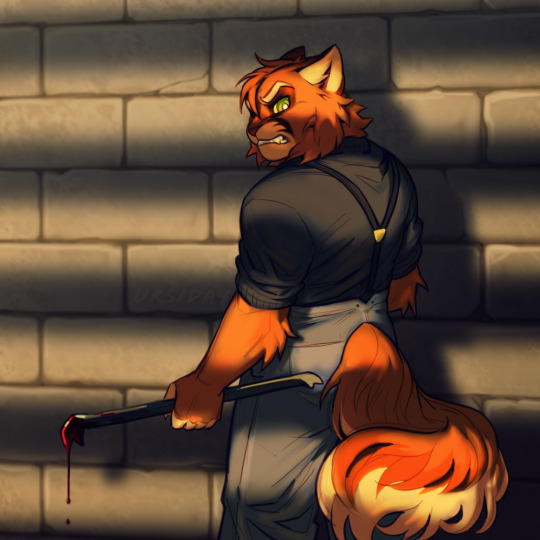
"The cage is open. You can walk out anytime you want. Why are you still in there?"
#lackadaisy#viktor vasko#fanart#digital art#artists on tumblr#not song lyrics for once but a quote from an ask polly article I think about constantly
867 notes
·
View notes
Note
do you like becoming tumblr famous or is it scary
So far, it's pretty good. I get an astonishing number of asks, and I feel bad that I cannot answer or address them all, but other than that, practically everyone has been lovely so far.
I have a bit of an odd relationship with fame. For much of my childhood, I idolised people who were famous, and dreamt of one day being famous, too. As I grew up, I met or interacted with more and more famous people, and later even got to know some very well. When you see it up close, it is often not desirable at all. It is in fact a huge strain on these people. And that's something I think we often forget; these are just people. Just apes wearing silly scraps of fabric and worrying about their families and their health, just like everyone else.
And so, I have no real interest in being famous, tumblr or otherwise. But I do enjoy having a wonderful, large, and continuously growing audience who revel in and enjoy the weird and wonderful creatures that I spend so much of my time thinking about, working on, and pursuing. I hope that it continues to grow! As I say, you have all been really lovely so far, and I could not find a better community on any other platform—of that I am sure! 🐸
#fame#tumblr fame#answers by Mark#about me#anon#anonymous#the internet is really really great#for frogs#not shown: the absolute BONKERS feeling of seeing your name in an article in NYT or National Geographic#or your research featured in the magazine you used to get yourself as a kid#now that is weird#being an adult is bizarre
308 notes
·
View notes
Text
poll time
#calumposting#social media#twitter#personally i call it twitter#i will never call it x#you will not CATCH ME calling it X#polls#poll#polls on tumblr#tumblr polls#the only time i accept the use of x is if it's in an article or something#but other than that i'm judging you
176 notes
·
View notes
Text
man, the world seems terrible and full of bad things, and then you read about the Chicagoan who started developing ramen recipes with meticulous (even obscene) attention to detail, or an Irish hurler who decried state-sponsored spending for sports complexes live on air, or well-considered analyses of films or animated television shows and whether they are narratively/dramatically coherent, and it's....well, it's okay to be here. I like it here.
#(imagine a narrator) ''well folks....it's that time....''#''find a special news site - that frequently updated lady''#''and tell her how much you love her. how much you care.''#[a tinny discordant waltz in punishingly slow 3/4 time wails]#(though I will say that article about the animated tv show reads you for FILTH if you've been on tumblr long enough#do you remember being here in 2014? well. buckle up.)#also the atlantic had a surprisingly affective article about the 1910s and grappling with the legacy of the civil war tbh#oh and there's a handful of nava//lny obituaries and articles that are very incisive and good.#I really just like news. when it's good it's very good.
195 notes
·
View notes
Text

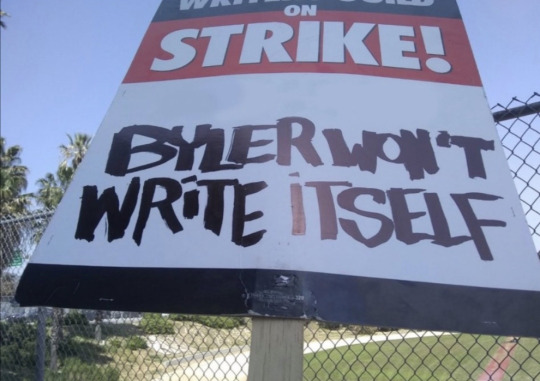
Both of the signs were made by the same person because the letters are written the same way.
#byler#byler won’t write itself#byler won't perform itself#byler endgame#byler tumblr#anti mileven#college byler#byler article
561 notes
·
View notes
Text
Back with a new article! Woo! Here is a list of 100 date ideas for writing romance. I often find myself wanting to write a romantic scene and defaulting to dinner--which is a classic but can become repetitive. Here are interesting prompts to inspire a variety of scenes for the sparks to fly.
Check it out and leave some claps on the article too! They help me out.
#writers on tumblr#writing tips#writing romance#writing prompts#romance prompts#article#I forgot I had a medium article to post about lol
700 notes
·
View notes
